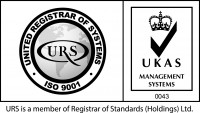Hospitals rely on critical medical devices and equipment to carry out a wide range of procedures, from routine check-ups to life-saving surgeries and maintaining life-support systems. The uninterrupted power supply is of utmost importance in this environment, as even the briefest power interruption can have life-threatening consequences. Therefore, selecting the right UPS system for a hospital is crucial to ensure seamless and uninterrupted operation of vital medical equipment.
Having a reliable UPS system is not only a practical necessity but also a legal requirement for medical facilities.
The consequences of a hospital power failure can be extremely serious and potentially life-threatening. They include:
- Patient Health and Safety: Critical medical equipment such as ventilators, life support systems, and dialysis machines rely on power. A power failure can directly jeopardise patient lives.
- Disruption of Medical Procedures: Surgeries, diagnostic tests, and other medical procedures may be abruptly halted, causing delays and potential complications.
- Emergency Care Impact: Power failure can hinder emergency departments' ability to provide timely care, leading to life-threatening situations for patients in critical condition.
- Medication and Treatment: Refrigeration for medications, vaccines, and blood products could be compromised, affecting patient treatment plans.
- Diagnostic Imaging: Imaging services like X-rays, CT scans, and MRIs may become unavailable, delaying diagnosis and treatment.
- Patient Monitoring: Monitoring systems that track vital signs and patient status might go offline, making it difficult to detect deteriorating health conditions.
- Infection Control: Power failure can impact ventilation systems and other infection control measures, putting patients at risk of healthcare-associated infections.
- Communication Disruption: Hospital staff rely on communication systems to coordinate care. Power failure can hinder effective communication, leading to potential confusion and delays.
- Security Concerns: Security systems that help maintain a safe environment for patients, staff, and visitors might be compromised during a power outage.
- Laboratory Services: Laboratories play a crucial role in diagnostics and treatment. Power failure can disrupt lab operations and delay test results.
- Telemedicine and Electronic Health Records: Power failure can disrupt electronic health record systems and telemedicine services, impacting patient care continuity.
- Patient Evacuation: In extreme cases, a prolonged power outage might necessitate patient evacuation, which poses additional risks and challenges.
- Loss of Data: Medical records and patient information stored electronically could be inaccessible or lost without proper backup systems.
- Moral and Psychological Impact: The stress and uncertainty caused by a power failure in a healthcare setting can impact the morale of patients, their families, and healthcare providers.
For the most reliable emergency power solution, we recommend the use of an Online UPS system. It offers the highest level of protection and guarantees continuous power supply to critical medical equipment. To receive the best advice and guidance on selecting the right UPS system for your hospital, we encourage you to contact us at South West Power Protection. Our team of experts will work closely with you to understand your specific needs and design a customised solution that addresses the unique power requirements of your medical facility.





